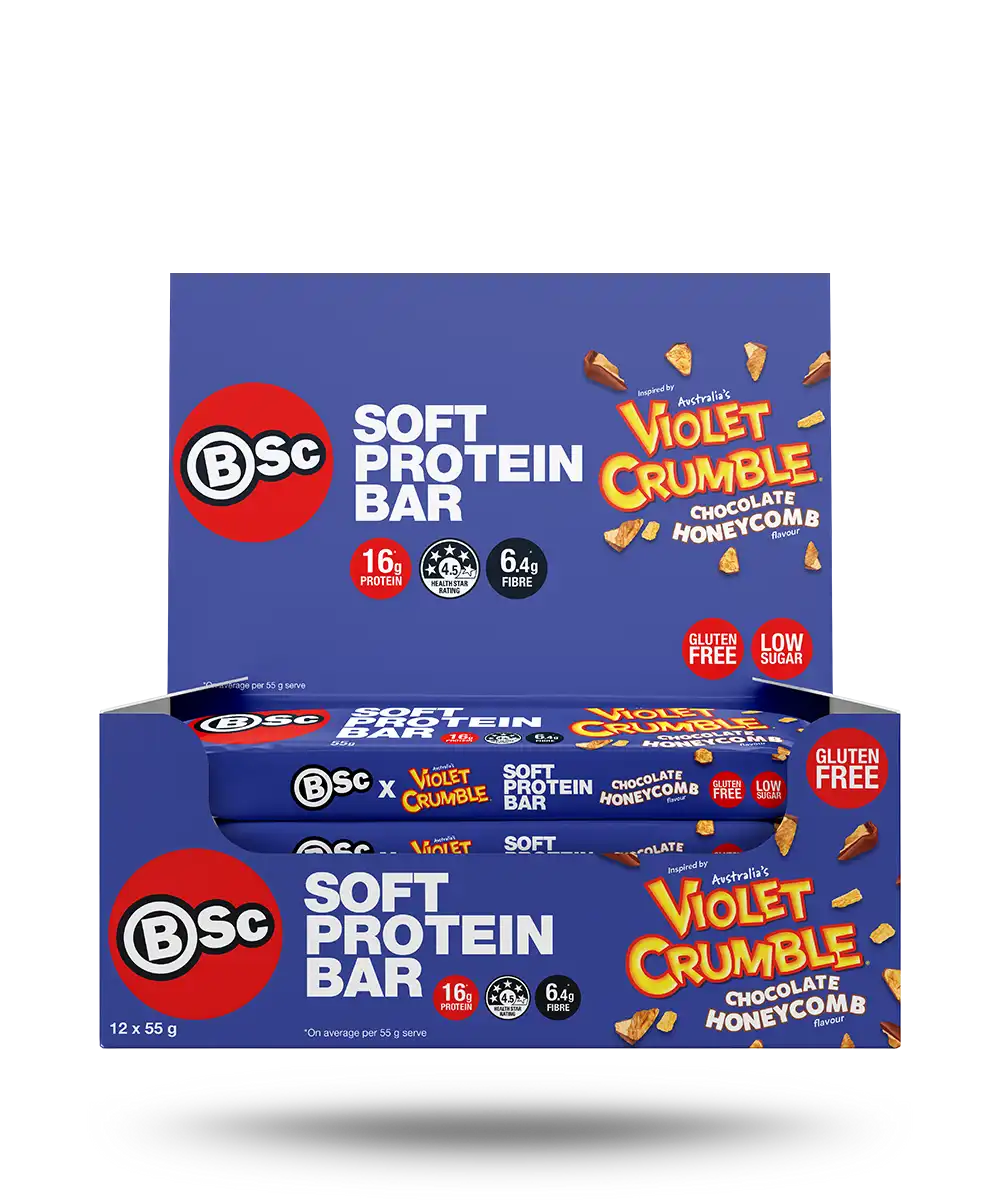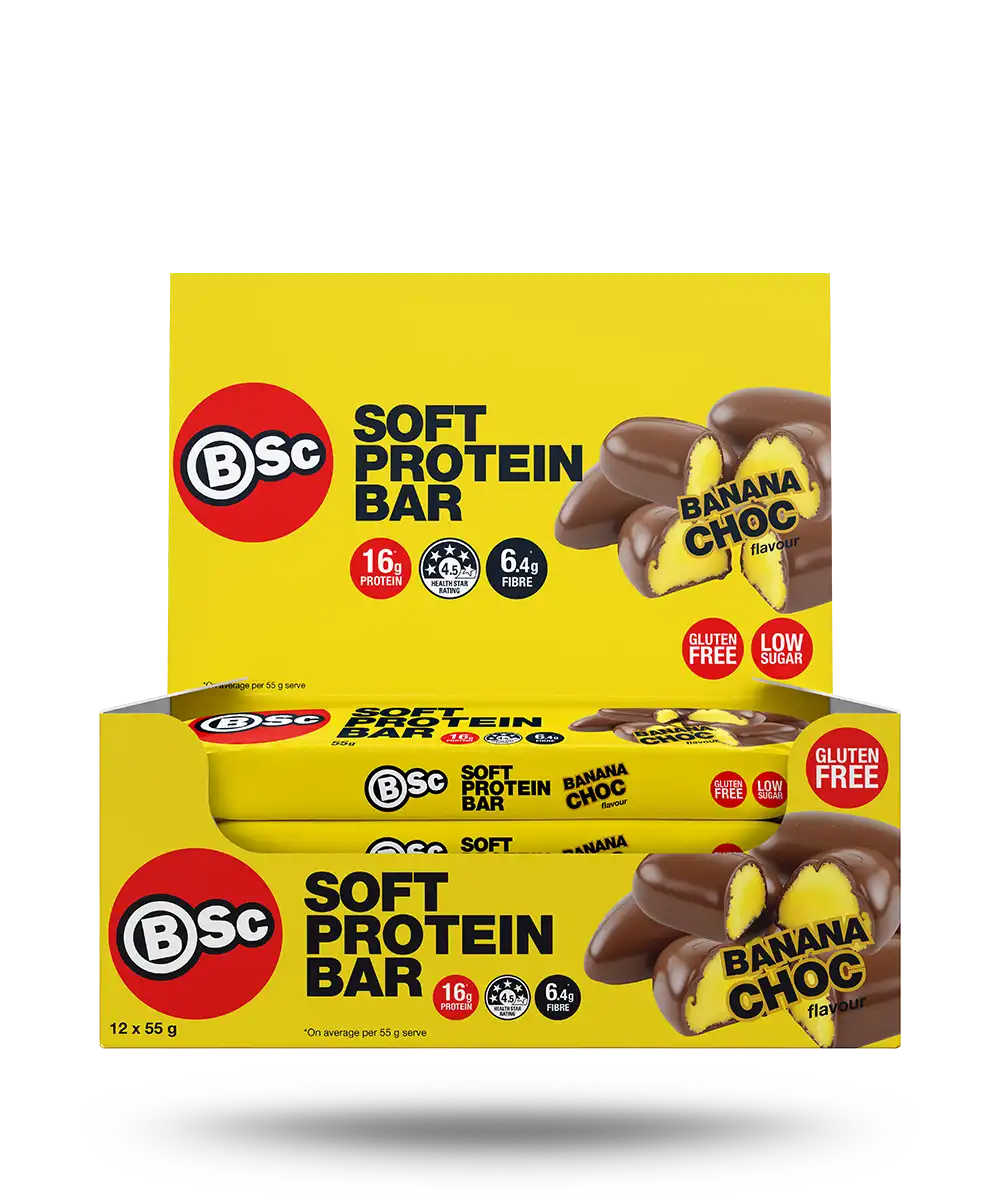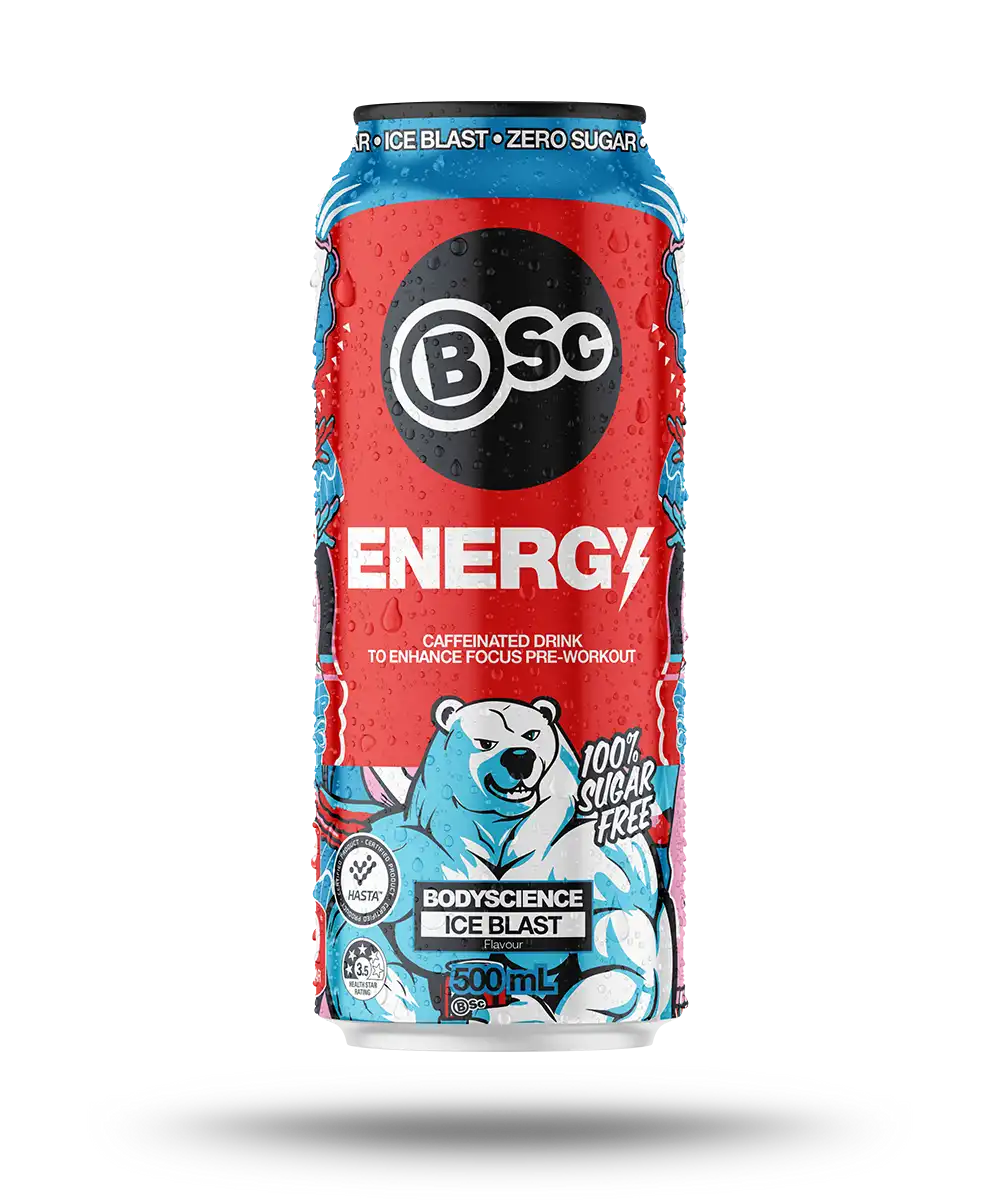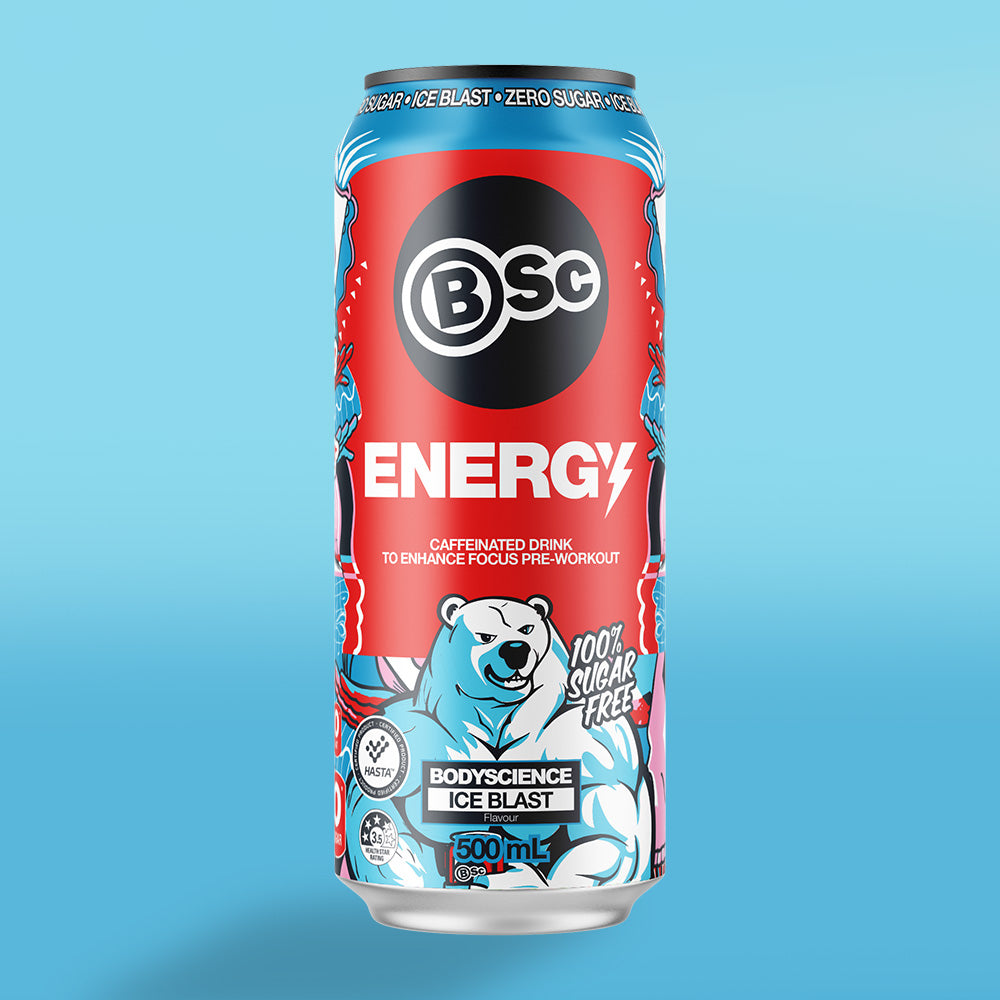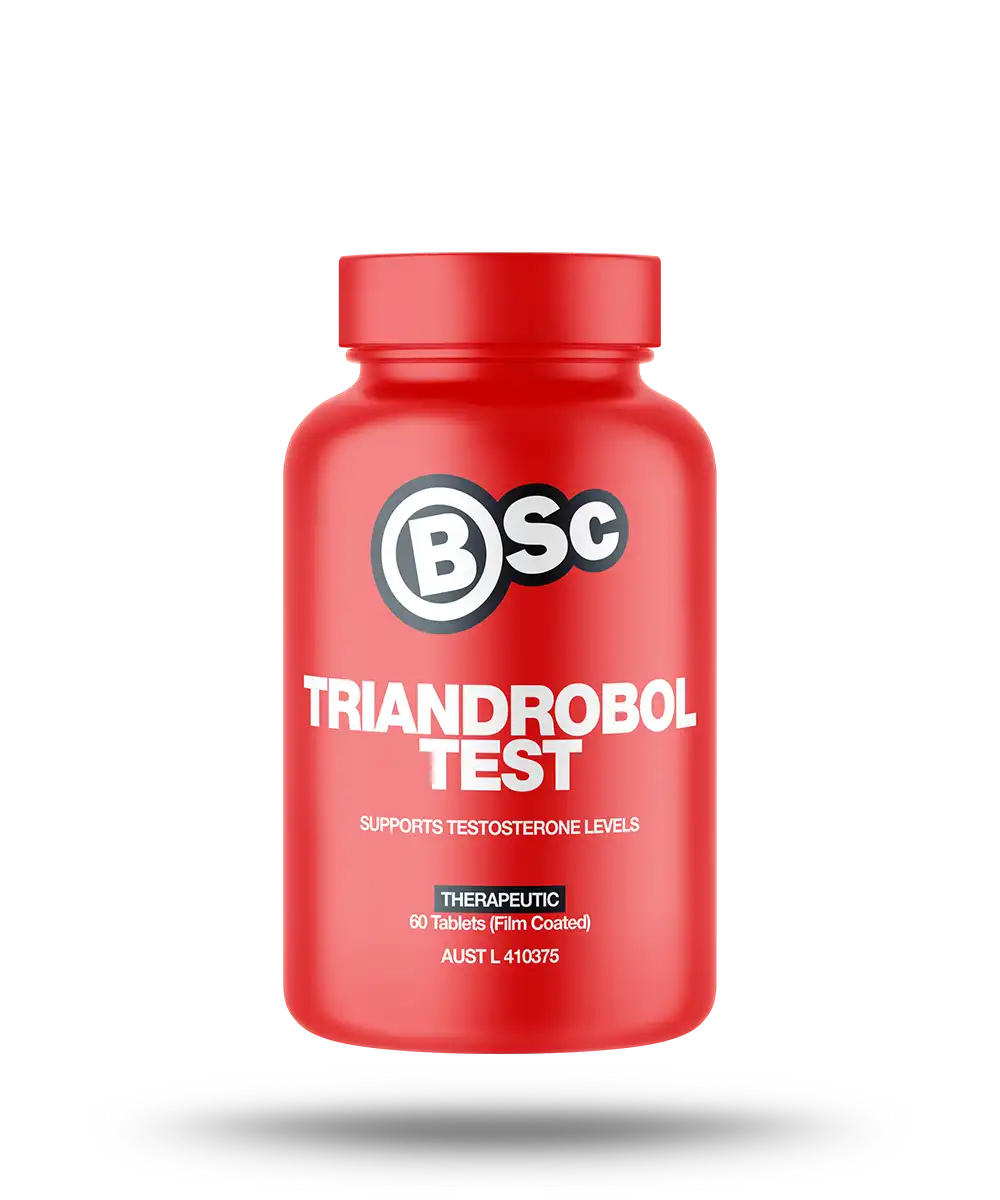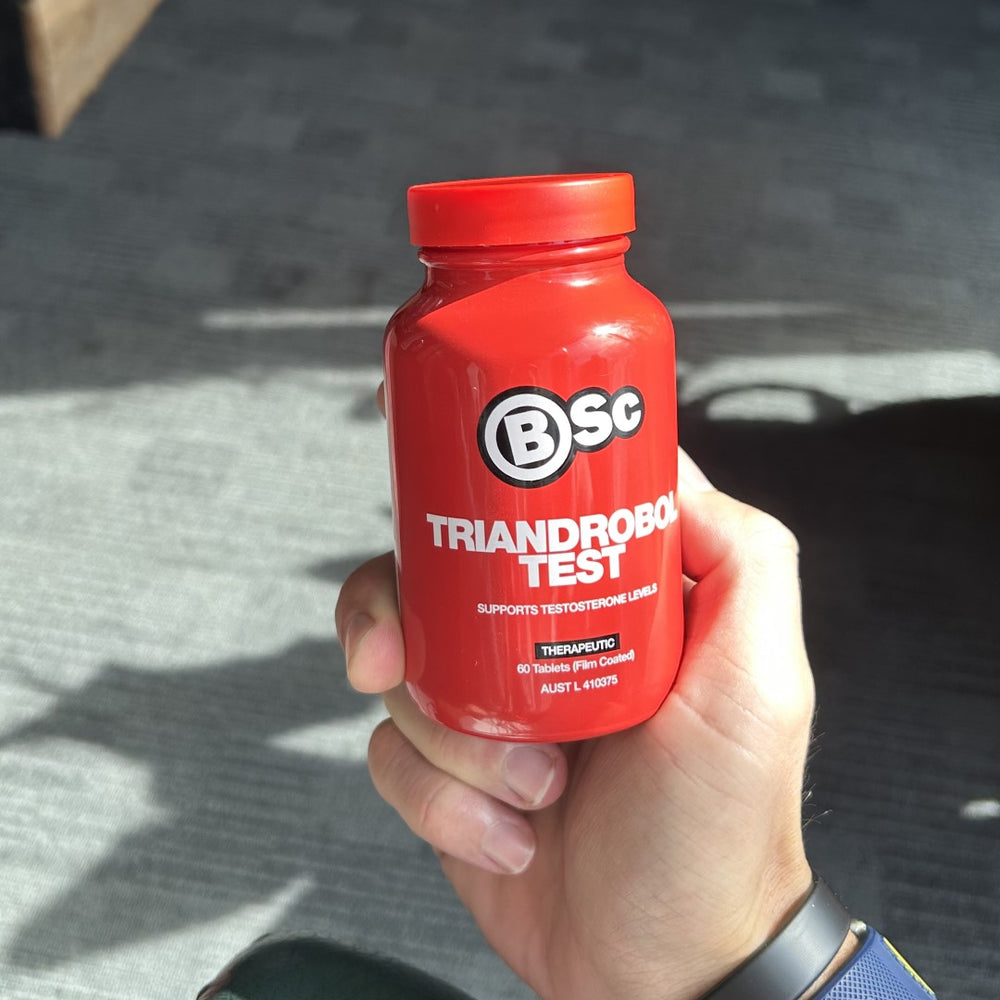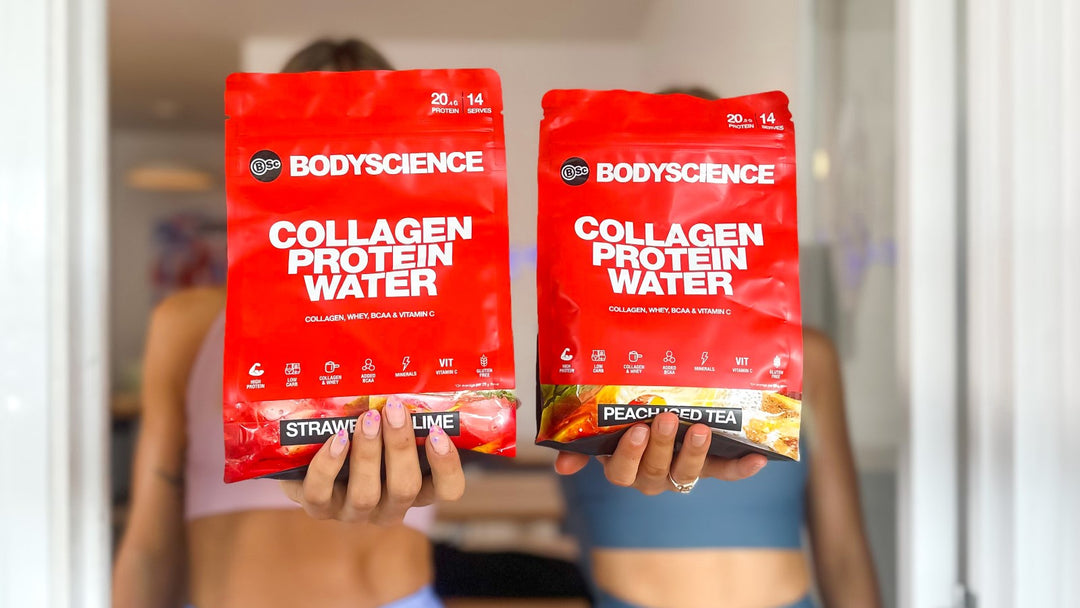If you’re searching for the right protein powder for lactose intolerance or a dairy-free lifestyle, you might come across whey protein.
It’s a protein that’s well known for its role in lean weight management and muscle building, but many people wonder whether whey is dairy, and if it is, what would be a suitable alternative protein for lactose-intolerant people?
In this article, we’ll look more closely at what whey protein is, what it means for vegan and lactose-free diets, and what types of whey protein alternatives for lactose intolerance are out there.
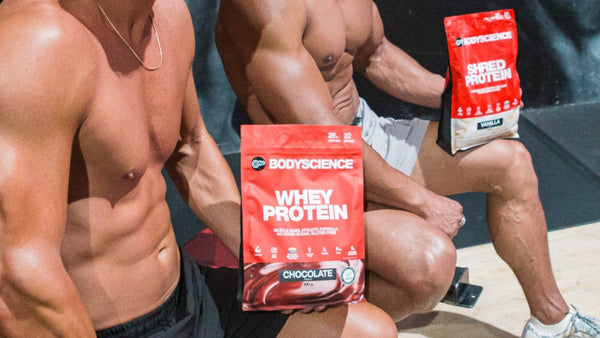
Straight up: Is whey dairy?
Yes, whey is a dairy product. It’s one of the two proteins found in cow’s milk – the other being casein.
Whey can be extracted directly from milk, or as a byproduct of the cheese-making process.
As a supplement, it comes in four different forms:
- Whey protein isolate
- Whey protein concentrate
- Hydrolyzed whey protein
- Whey permeate.
Most whey protein powders, such as BSc whey protein powder, contain whey in the form of concentrate and isolate.
Because whey protein has such a wide variety of benefits and is much-loved in the health and fitness space, some people may be disappointed to learn that whey is a dairy product.
But thankfully there are suitable alternative types of protein for lactose intolerant people.
Whey protein alternatives for lactose intolerant people and vegans
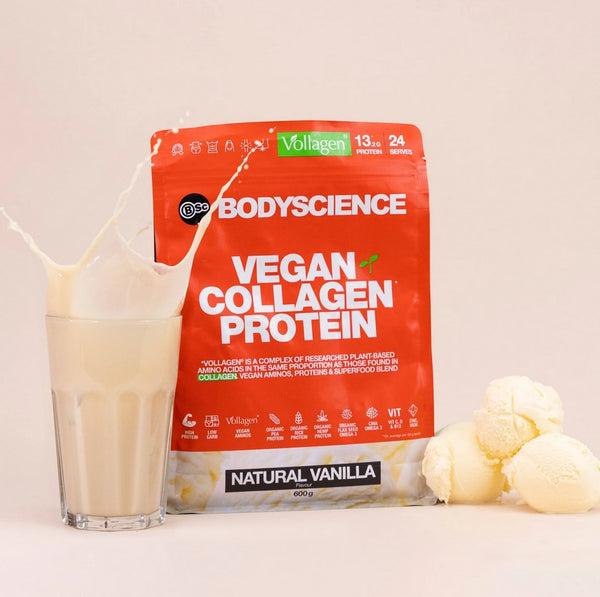
If the fact that whey is a dairy product means you can’t have it, there’s still a wide variety of great protein options available for you.
Some good whey protein substitutes for lactose-intolerant people and vegans include:
- Pea protein
- Hemp protein
- Brown rice protein
- Soy protein.
The best type of protein powder for lactose intolerant people will include a powerful plant protein blend, combining several of these protein sources together. This ensures that all nine amino acids are included at equal levels.
Plant protein blends also often have additional enzymes that help the body better digest the product.
A blended vegan protein powder may also more effectively promote the synthesis of protein, which better facilitates muscle growth.

Try BSc Plant-Based Protein for lactose intolerant people and vegans
While whey products are dairy, BSc vegan protein products are dairy-free and contain similar protein levels per serving as you’d find in whey.
They’re also free from gluten, cholesterol, fat, and lactose, making them a great whey protein substitute for the lactose intolerant.
Want to know how to avoid whey, but still benefit from a powerful dairy-free protein?
Check out these BSc bestsellers.
Vegan Collagen Protein
BSc Vegan Collagen Protein is a great whey protein substitute for lactose intolerant people and vegans, containing a complete blend of essential nutrients for people on a dairy-free diet.
Benefit from:
- A complex of amino acids that together mimic Collagen, and provide the same health benefits
- 13.2g of protein per serve
- A plant-based protein blend of Organic Pea, Organic Brown Rice, and Organic Hemp protein
- Added Omega-3, Vitamin D, Vitamin B12, Vitamin C, Zinc and Iron.
Clean Plant Protein

BSc Clean Plant Protein is packed full of certified organic plant protein from 10 different sources, making it one of the leading whey protein alternatives for lactose-intolerant people.
It tastes delicious and is made with 100% real food ingredients.
Benefit from:
- Added digestive enzymes and natural sweeteners
- More than 30g protein per serve
- Sustainable packaging and product.
Vegan Protein Bars
For a more convenient, on-the-go protein source for lactose intolerance, check out our tasty range of vegan protein bars.
Packed full of soy protein, these are low in carbs and fat, making them a great way to curb hunger while supporting your health and fitness goals. Benefit from:
- 13g protein per bar
- A range of tasty flavours to choose from
- The convenience of a ready-to-eat snack.
As you can see, there are plenty of great plant-based protein products available for lactose-intolerant people and vegans.
But if you’re concerned that these don’t provide the same health benefits that you’d get from dairy-based whey protein, let’s alleviate those concerns.
Whey protein vs. plant-based protein: Comparing the benefits of both
|
Benefits of dairy-based whey protein |
Benefits of plant-based proteins |
|
|
While whey protein provides some great health benefits, plant-based proteins are also beneficial to your health and fitness performance.
Some people even argue that the environmental benefits of plant-based proteins make them a better choice.
Because whey is a dairy product it’s typically not a suitable source of protein for lactose intolerance, or for vegan diets.
That said, it’s not necessarily a write-off protein for lactose-intolerant people.
A note on whey protein for lactose-intolerant people
Lactose intolerance affects different people in different ways and to differing degrees.
Recent evidence suggests that people with lactose intolerance should actually still consume as much lactose as their bodies can handle.
Some research demonstrates that most people can tolerate 5g of lactose in a single serve, which means whey protein for lactose intolerant people may not be out of the question.
For example, a 25g serve of whey protein isolate is equivalent to around 0.4g of lactose, while a 25g scoop of whey concentrate equates to around 1.6g of lactose – well below the 5g limit.
Because whey is a dairy product, it’s not suitable for people with a dairy allergy.
But if you suffer from a lactose sensitivity or intolerance, you may still be able to consume whey protein in small amounts.
If you’re unsure, it’s best to speak with your doctor to determine your level of intolerance before trying whey protein.
If whey protein doesn’t sit well with you, rest assured there are plenty of great whey protein alternatives for lactose intolerant individuals, as we’ve outlined above.
You can step up your protein intake without experiencing the symptoms of lactose intolerance by checking out our whey protein lactose-free products.
These supplements are gentle on your body and provide you with the nutrients and amino acids the body needs to perform at its best.
Can’t eat dairy? How to avoid whey
If you follow a vegan diet or can’t tolerate lactose, you’ll want to know how to avoid whey. Here are some tips on how to do it.
Be on the lookout for hidden forms of whey protein
Most of the packaged goods you find in the supermarket will be unsuitable for you if you have lactose intolerance.
Processed foods like biscuits, cakes, cheese sauces, and soups contain lactose, and in many cases, lactose isn’t explicitly listed in the ingredients.
Whey protein may be listed as:
- Lactoglobulin
- Glycomacropeptide (GMP)
- Lactoferrin
- Immunoglobulin
- Lactoperoxidase
- Bovine serum albumin (BSA)
- Transferrin
- Lipases
- Lysozyme.
Hot tip: If you want to avoid whey, watch out for any products with ingredients that start off with the prefix "lact-."
Opt for vegan protein products

Good quality plant-based protein powders are the best whey protein substitutes for lactose-intolerant people and vegans.
When choosing your vegan protein powder, go for ones that contain the complete mix of nine essential amino acids.
Consider those with added vitamins and minerals, too, as this can be beneficial for increased absorption.
Work with a nutritionist to ensure you’re still meeting your dietary needs
Dairy products are a key source of calcium, protein and other nutrients.
If you’re avoiding these types of foods, it’s important to ensure you’re still meeting your dietary needs.
Can’t have whey protein?
For lactose intolerant people and vegans, it’s a good idea to chat to a nutritionist or dietitian about what alternatives or supplements to take to boost your overall health.
Plant-based protein for lactose intolerance can be just as effective at helping you build lean muscle – and thankfully without the stomach upset.
Check out the full range of BSc vegan products.

